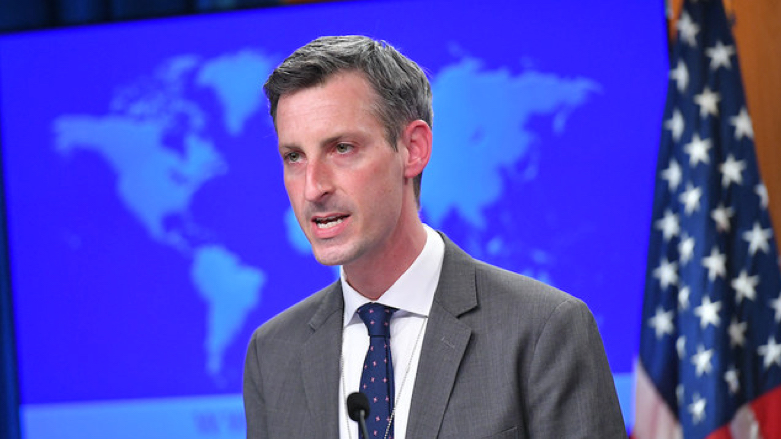Possible Omani mediation to free Americans held in Iran

WASHINGTON DC, United States (Kurdistan 24) – On Wednesday, journalists again questioned State Department Spokesperson Ned Price, as to whether the US was conducting indirect negotiations with Iran on restoring the 2015 nuclear deal, formally known as the Joint Comprehensive Plan of Action (JCPOA.)
That had been a repeated question last week in the State Department briefings. Price was asked the question three times. Each time, the answer was the same: no.
Read More: Iran preparing to receive advanced Russian jets; reflects closer ties, driven by Ukraine war—report
And on Wednesday, Price’s answer was the same: again, no.
“The JCPOA is not on the agenda [and] has not been on the agenda for some time,” he said.
The question was prompted by the statement on Tuesday of an Iranian member of parliament, who had said that the Sultan of Oman would be traveling to Tehran to discuss the JCPOA.
But that does not seem correct—at least not in its entirety. There seems to be some kind of Omani mediation between Washington and Tehran, but not over the JCPOA.
Price seemed to quash that scenario, but other possibilities remain, including discussions about the release of US citizens held by Iran.
Three Issues of Concern: Human Rights Abuses; Arms Supplies to Russia; Detention of US Citizens
In Wednesday’s briefing, Price described the “three things” that now concern the US regarding Iran.
“Our focus has been on Iran’s brutality—its repression against its own people,” he began. In addition there is “Iran’s provision of UAV technology to Russia,” as well as “our ceaseless efforts to see our wrongful detainees freed.”
The US Special Envoy to Iran, Rob Malley, visited Oman last week, as Price confirmed, speaking highly of Oman.
“There are a number of countries, including in the Middle East, who have played an important role helping to bridge divides, helping the United States in our indirect engagement with Iran to stress the key messages that we’ve been stressing: release our citizens,” Price said, before describing the two other Iran-related issues of US concern.
“Rob’s engagement with his Omani counterparts and the Omani leadership was part and parcel of that,” Price stated.
Of all the issues that Oman might be mediating between the US and Iran, the fate of US citizens detained in Iran appears most likely.
Indeed, last October, an elderly American, Baquer Namazi, who had travelled to Iran in a failed attempt to free his son, was released. Oman was one of five countries, along with the UN Secretary General, involved in securing that.
Read More: US welcomes Iran lifting travel ban on ailing 85-year old dual citizen
But Iran may be demanding a high price to free its remaining US hostages. Last week, NBC News reported on the existence of indirect talks aimed at securing the release of Americans held in Iran.
“The negotiations have made progress,” NBC said, “but it remains unclear if a final agreement can be reached,”
The US and Iran, through intermediaries, are exploring the possible release of as much as seven billion dollars in Iranian funds held in South Korean banks, but which is still blocked by US sanctions, NBC reported.
Such funds, if released, could only be used for humanitarian purposes, like food and medicine. A third country would oversee the transfer of the funds to ensure the money was used only for designated purposes.
Three US citizens remain detained in Iran, as well as several US residents, although the number of the latter has not been publicly released.
